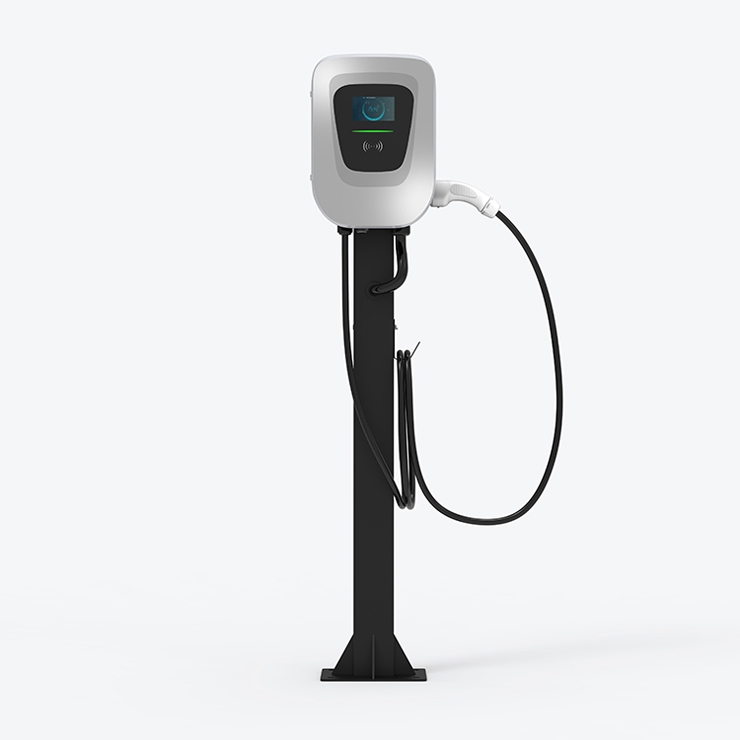
Products
Fast, Reliable, Everywhere

Solutions
Efficient, Innovative EV Charging Solutions.
News
We are committed to the innovation and application of EV charging.
Chargers for electric vehicles (EVs) are tools used to replenish the energy stored in their batteries. Rechargeable batteries power EVs' electric motors, and much like a gasoline-powered automobile, they must be refuelled to remain in operation. Electricity is supplied via EV chargers to an electric vehicle's batteries, which may power the motor. They are available in various designs and power capacities, including DC fast chargers that deliver substantially higher charging power and Level 2 chargers that require a 240-volt outlet. Level 1 chargers use a typical 120-volt home outlet.
The power level of the charger, the battery's capacity, and the charge level all affect how long it takes to charge an EV. For instance, a DC fast charger may deliver an 80% charge in 20 to 30 minutes, while a Level 1 charger can take several hours to charge an electric car completely. Electric vehicle (EV) chargers are often found at companies, households etc. The availability of charging infrastructure is crucial to supporting the expansion of the EV market and assisting in reducing transportation-related carbon emissions as more people transition to electric vehicles.
Are there different types of EV chargers? Yes, several varieties of electric vehicle (EV) chargers are on the market. To make an informed choice regarding which charger to utilize for their specific needs, EV owners must know how the various charger types differ in charging speeds, power outputs, and interfaces. Some of the most popular types of EV chargers are listed below:

The most basic EV chargers are Level 1 chargers, which are created to be plugged into a typical 120-volt household outlet. Depending on the size of the battery, these chargers can take several hours to completely charge an EV because they only have a charging capability of 1.4 to 1.9 kW. The optimum use for Level 1 chargers is overnight charging or topping off a partly discharged battery throughout the day. They are also the most transportable EV charger and may be brought anywhere.
Depending on the charger's capacity, Level 2 chargers are intended to be hardwired into a 240-volt outlet and offer a charging power range of 3.3 to 19.2 kW. Accordingly, they can charge an EV far more quickly than a Level 1 charger and, depending on the battery capacity, can offer a complete charge in as little as a few hours. Level 2 chargers are typically found in offices, households, and public charging stations. They are a popular option for EV owners who desire a higher charging rate for their vehicles than Level 1 chargers can offer but do not need the high-speed charging capabilities of DC fast chargers.
Compared to Level 2 chargers, DC fast chargers offer substantially higher charging power, often between 50 kW and 350 kW; these chargers can charge an EV up to 80% in 20 to 30 minutes since they use direct current (DC) to charge the battery. DC fast chargers are designed for long-distance travel and are typically available at public charging stations along motorways and major routes. Because they are more expensive to install and operate than Level 1 or Level 2 chargers, they are less frequent in home and business settings.
The following are a few of the most popular connection types:
The CCS connection is an altered Type 2 connector with two extra DC pins. As a result, the connection may be used for both AC and DC charging, giving EV owners a flexible choice. Most top automakers support the CCS connection, widely used in Europe and North America.
The Type 1 connection, CHAdeMO, is most often used in Japan and the US. It is a DC fast charging connection with up to 62.5kW of charging power.
The Tesla Connector, a specialized connector used by Tesla automobiles, is exclusive to Tesla's own Supercharger network. A DC fast charging connector called the Tesla Connector has a charging capacity of up to 250 kW.
Benefits of installing chargers:
Electric vehicle (EV) chargers come in numerous varieties with varied charging comfort and speed levels. Which sort of charger is best for you depends on how far you drive each day, the size of your EV battery, and where you charge it. Depending on your unique demands and driving patterns, adding above mentioned chargers may be advantageous. The following are some advantages of installing various charger types:
Level 1 Charger:
Level 2 charger:
DC Fast Charger:
Are there different types of EV chargers? Discussed above. Charging electric automobiles may help the environment by lowering emissions from conventional fuel vehicles. Due to PIWIN electric chargers' quick switching times, compatibility with most EV models, and capacity for multiple users, EV owners may reduce their overall ownership and charging time costs. We could use the OCPP protocol to dock platforms deployed abroad. For a long time, our company has been developing AC and DC chargers for electric vehicles for the international market.
